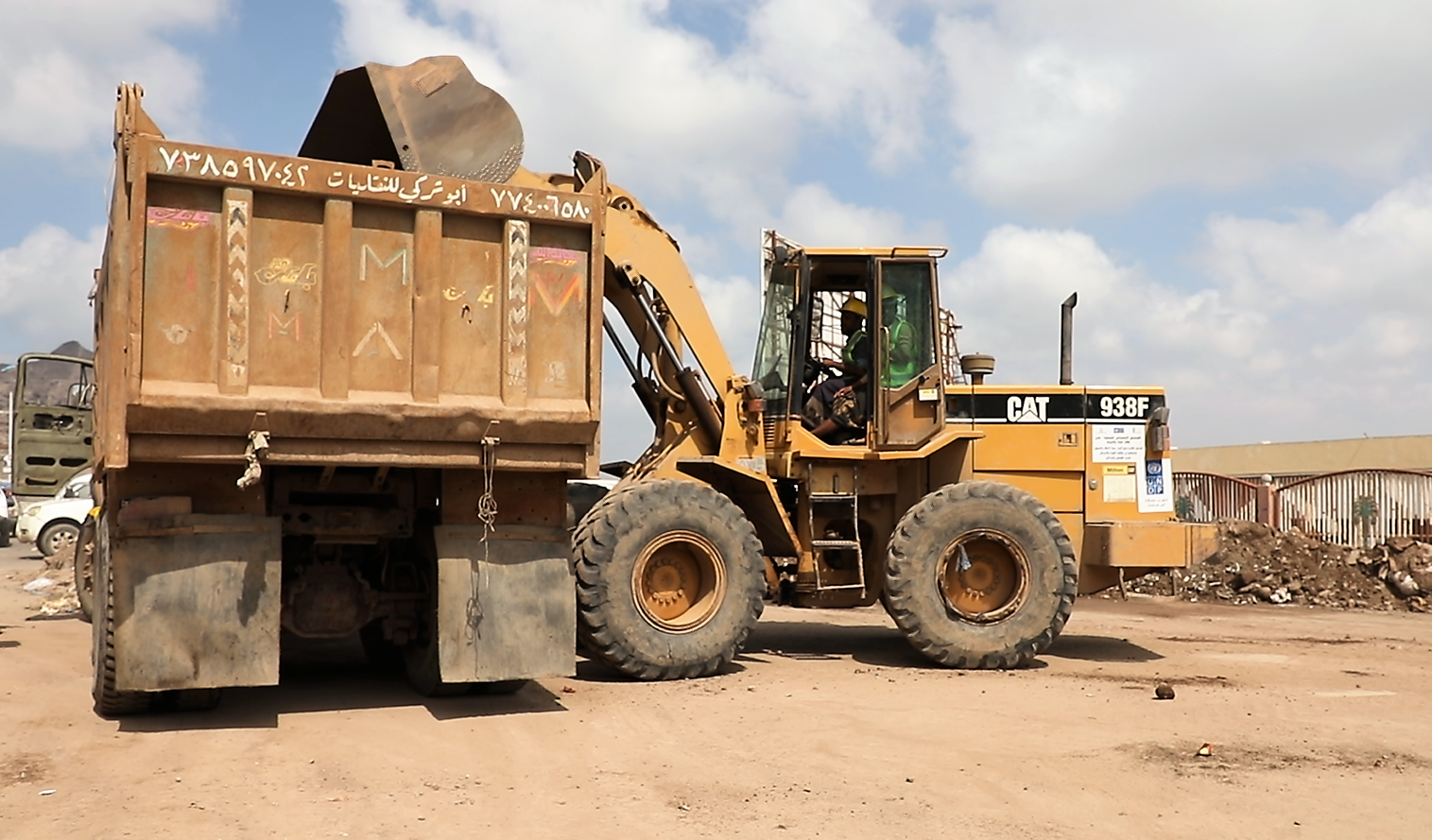March and April 2020 proved to be an unprecedented rainy season in Yemen’s Aden governorate. Swiftly moving rain waters reaching meters high tore through communities, devastating human lives, houses, transport networks, irrigation channels and farm land. Communities found themselves unprepared to react and were left to face compounding crises: conflict, floods, waterborne diseases, and a spreading COVID-19. And thousands of families suddenly faced unexpected difficulty in coming to grips with losing their earthly belongings.
Forty-five year old, Noor Ahmed, who lives with her family in a small house in Sirah district was one of them. "I remember the day clearly. It was heartbreaking for us to watch everything we owned gushing away in the flood waters. Right before our eyes, we had nothing. We had to run to the roof so we wouldn’t be swept away too," she explained. She goes on to say that she witnessed cars being carried through the streets by the torrential floods. Noor and her family watched a combination of vehicles, mud, rock and debris completely block several roads and when they went back inside, she says “There was a lot of water and mud in my home. I don’t know what to do.”
With the support of Japanese Government, the United Nations Development Programme (UNDP) in Yemen is supporting efforts to help the city of Aden and families like Noor’s recover from the flash floods. Work is ongoing to help improve the situation after the floods by focusing upon the quality of life and health for the people of Aden – including removing waste and stagnating water to reduce rampant diseases like typhoid, dengue and cholera.
But disease is not Noor's only concern. Because of the floods, their road was one of the ones that was blocked, and their water trucks were no longer able to deliver drinking water or other vital supplies. Through our Water, Sanitation and Hygiene (WaSH) project, UNDP and our partner, the Public Works Project, sprang into action with bull dozers to quickly remove tons of waste to help facilitate the reopening of several key roads. This allowed families to freely move about again to purchase lifesaving goods like food and water, as well enabled much needed services to access them and their homes to begin the long clean-up process.
Noor says that the situation is extremely difficult these days in Aden as they struggle to stay on top of all the crises and as many of the basic services begin to close due to COVID-19. “But at least I can access clean drinking water, move about freely and continue to live my life – however difficult.”
UNDP and our partner’s flood interventions were desperately needed in Aden and helped a suffering community maintain vital services, avoid diseases, and restore a little hope.
***
Funded and supported by the Japanese Government, the Crisis Support to Solid Waste, Water Supply, and Sewage (WASH project) is implemented by UNDP.
This project is supporting SDGs: SDG 6, SDG 9, and SDG 16

 Locations
Locations





